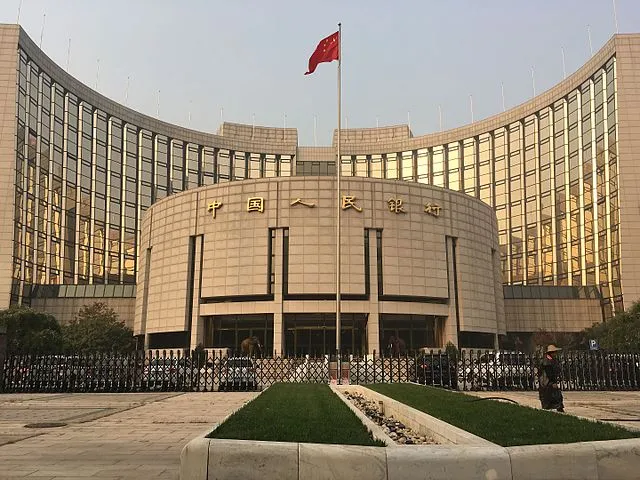
Is China making progress in reining in shadow bank growth?
The enhanced regulation is finally showing some results.
Moody's Investors Service says that the Chinese authorities appear to be making progress on reining in credit growth and the enhanced regulation of shadow banking is having some effect in moderating the growth of wealth management products.
"However the authorities are also engaged in a delicate balance to ensure that tighter credit and liquidity conditions do not trigger financial instability," says Michael Taylor, a Moody's Managing Director and Chief Credit Officer for Asia Pacific.
"Tighter market liquidity is being partially offset by higher lending to the banking system by the People's Bank of China, while regulators are offering grace periods for the implementation of new policy guidelines," adds Taylor.
Here's more from Moody's:
Moody's explains that as regulation around previously fast-growing shadow banking activity is tightened, credit flows are increasingly sustained by formal bank lending and lending by the comparatively more highly regulated parts of the shadow banking sector, such as trust companies.
"The rotation of credit supply to these sources improves transparency and could increase the system's resilience in the face of unexpected shocks," says George Xu, a Moody's Associate Analyst. "However, it remains unclear whether credit from these sources will be sufficient to replace credit supplied by the shadow banking components that are now subject to closer regulatory scrutiny."
Consequently, Moody's notes that refinancing risk is rising for borrowers — such as some property developers, local government financing vehicles and state-owned enterprises in overcapacity industries — that have become particularly dependent on shadow credit.
Moody's conclusions are contained in its latest "Quarterly China Shadow Banking Monitor," and is co-authored by Taylor and Xu. The publication draws on publicly available data sources to provide an overview of trends and developments in this important component of the Chinese financial system.
Moody's says that the gap between overall credit growth in the Chinese shadow banking sector — as measured by Moody's adjusted Total Social Financing (TSF) series — and the growth rate of nominal GDP has narrowed and stabilized in recent quarters.
In addition, other forms of credit which are not captured by TSF — such as assets funded by wealth management products — are also seemingly growing more slowly in 2017, due to regulatory action.
Consequently, although economy-wide leverage continues to rise, growth is at a slower rate than in the recent past.
Specifically, Moody's says that there have been some encouraging signs that enhanced regulatory policy measures have successfully constrained the growth of the banks' wealth management products and "investment receivables".
Moody's points out that the challenges associated with regulatory tightening are illustrated by a strong rebound in new negotiable certificates of deposit issuance and the increase in the banks' net claims on non-bank financial institutions (NBFIs); both indicators of continuing system interconnectedness.
NBFIs in particular appear to be facing tighter liquidity conditions, as evidenced by the increased divergence between the 7-day repo rate that applies to them and the same rate that applies only to the banks. The impact of tighter liquidity is also apparent in terms of higher expected rates being paid on wealth management products and the returns offered by Yu'e Bao, China's dominant money market platform.






![Lorem Ipsum [ABF 1]](https://cmg-qa.s3.ap-southeast-1.amazonaws.com/s3fs-public/styles/exclusive_featured_article/public/2025-03/a_hand_pointing_to_a_futuristic_technology_5b87c9d0e3_1.png.webp?itok=2w0y1WhS)


![Cross Domain [Manu + SBR + ABF + ABR + FMCG + HBR + ]](https://cmg-qa.s3.ap-southeast-1.amazonaws.com/s3fs-public/styles/exclusive_featured_article/public/2025-01/earth-3537401_1920_4.jpg.webp?itok=WaRpTJwE)








 Advertise
Advertise

